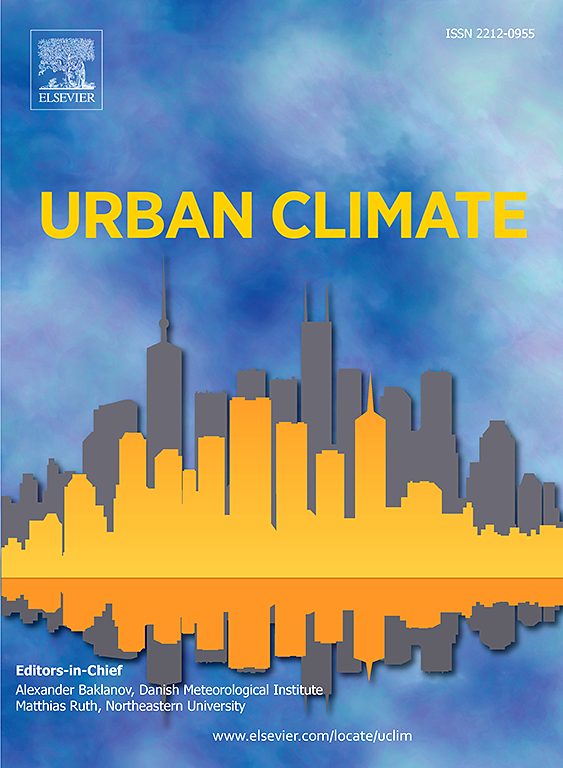Modeling of urban lake breeze circulation: Implications for the mitigation of urban overheating
IF 6
2区 工程技术
Q1 ENVIRONMENTAL SCIENCES
引用次数: 0
Abstract
The urban overheating phenomenon, induced by both global warming and the urban heat island (UHI) effect, has been exacerbated by worsened urban wind environments. Urban lakes may aid in mitigating urban overheating through the process of lake breeze circulation (LBC). In this study, we developed a multi-scale water-energy coupled CFD model to simulate the transport of heat and moisture between lake surfaces and built-up areas and to resolve dynamics of atmospheric temperature, humidity, and wind at both street canyon scale (1m) and city scale (50km) with relatively low computational costs. Based on this model, we conducted sensitivity analyses to study the impact of urban, lake, and atmospheric parameters on thermal comfort conditions in the city. Our results show that the cooling capacity of LBC is more evident in hotter and denser cities. Furthermore, in the process of urban expansion, horizontal sprawl (i.e., increasing city size) is more advantageous than vertical growth (i.e., increasing building height) and infilling growth (i.e., increasing building density), considering the cooling potential of LBC. Our results can provide significant references for urban planning and city design for the sake of the mitigation of urban overheating via lake breezes.
求助全文
约1分钟内获得全文
求助全文
来源期刊

Urban Climate
Social Sciences-Urban Studies
CiteScore
9.70
自引率
9.40%
发文量
286
期刊介绍:
Urban Climate serves the scientific and decision making communities with the publication of research on theory, science and applications relevant to understanding urban climatic conditions and change in relation to their geography and to demographic, socioeconomic, institutional, technological and environmental dynamics and global change. Targeted towards both disciplinary and interdisciplinary audiences, this journal publishes original research papers, comprehensive review articles, book reviews, and short communications on topics including, but not limited to, the following:
Urban meteorology and climate[...]
Urban environmental pollution[...]
Adaptation to global change[...]
Urban economic and social issues[...]
Research Approaches[...]
 求助内容:
求助内容: 应助结果提醒方式:
应助结果提醒方式:


